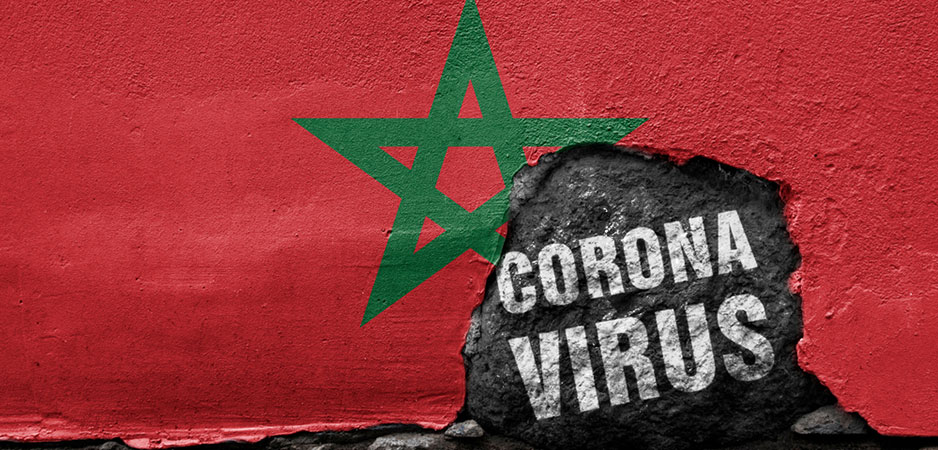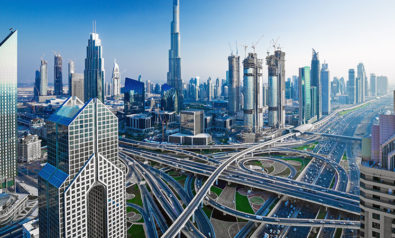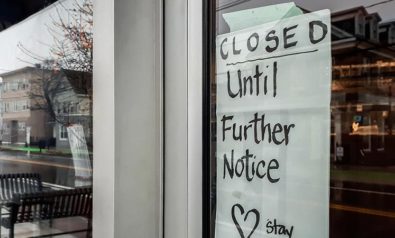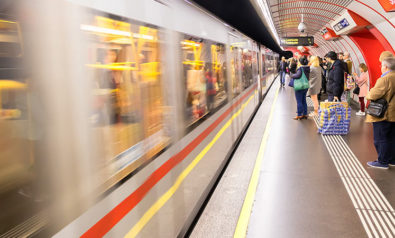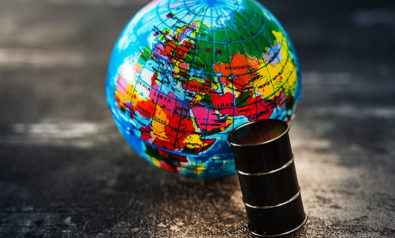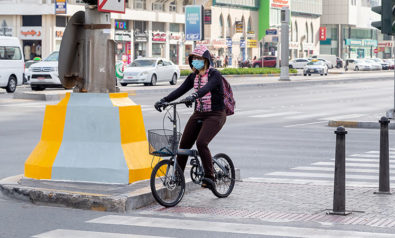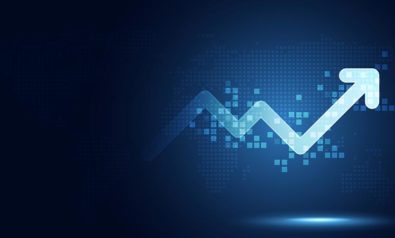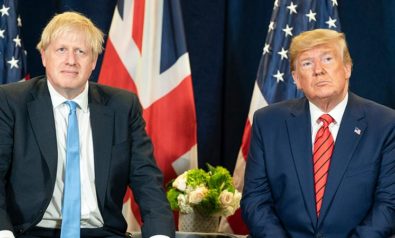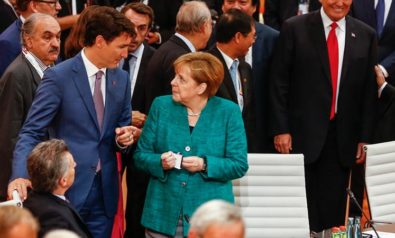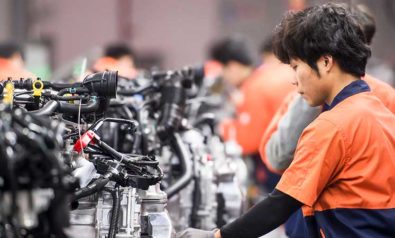Morocco is committed to finding opportunities to restructure and redirect its economy to be better prepared for other potential calamities, such as the coronavirus pandemic. The economy is already facing a downturn due to drought, which may result in as much as a 42% decline in cereal production for 2019-20. However, given advances in the agricultural sector over the past few years, overall agricultural GDP is not expected to fall by more than 5%.
In other news, the Food and Agriculture Organization (FAO) has declared that a Moroccan digital tracking system is the most “innovative initiative in the Middle East and North Africa (MENA) for the protection of farmers and vulnerable groups against COVID-19 contamination,” Zuza Nazaruk says. Writing for Morocco World News, she adds that by “digitizing the processes of cultivation and harvesting, the innovation facilitates the management of key stages of cultivation.”
Will COVID-19 Change Algeria, Morocco and Tunisia?
The program benefits all sizes of farms and is one of the results of the 2008 Green Morocco Plan, which funded a range of initiatives and programs. The aim of the plan was to make agriculture one of the main growth engines of the national economy by stabilizing production and thereby increasing its contribution to “GDP growth, job creation and poverty reduction.”
To enable farmers and companies in the agricultural sector to access financing during the coronavirus pandemic, Moroccan bank Credit Agricole has signed a 560-million dirham line of credit with the French Development Agency. At around $57 million, this would enable micro, small and medium-sized companies to secure funding at reduced rates for seeds, equipment and social services for rural families and marginalized people during the health crisis.
The line of credit is in addition to 16.8 million dirhams ($1.7 million) that is intended to support sustainable agricultural projects that “contribute to the deployment of more sustainable and local agriculture,” which includes “integrated irrigation, energy efficiency, organic farming, agricultural waste treatment and local farming.”
In manufacturing, a number of analysts believe that the global infrastructure of value supply chains may undergo dramatic changes due to COVID-19, the disease caused by the novel coronavirus. As the US is experiencing, there is now greater awareness of factors other than costs and speed of delivery, which must be taken into account.
Supply Chains
There is growing concern about excessive reliance on China for global manufacturing. A great deal of analysis is being given to medium and long-term alternatives to reduce vulnerabilities in supply chains of major sectors, including the automobile, textiles and electronics industries as well as pharmaceuticals and health. For example, China monopolizes more than 15% of the world export market. When its labor force was constrained by the coronavirus lockdown earlier this year, coupled with the dramatic rise in demand for medical and protective equipment, the fragility of the current system became obvious.
Other factors calling into question the primacy of global supply chains are the rising wage costs in Asia that are no longer offset by productivity gains, the growing utilization of robotics and artificial intelligence (AI) in production, resurgent protectionism in the US and Europe, trade and tariff regimes that penalize some categories of imports, and growing concern for the environmental impact on labor and nature due to a lack of monitoring by foreign companies.
While there are several scenarios of options moving forward, Morocco is in a unique position to up its game by becoming a regional leader in supply-chain production. Morocco has the capacity to expand its industrial base quickly to meet demands in Europe and the US through the kinds of partnerships it already has with automobile and aeronautical manufacturers.
This kind of regional relocation will only have an incremental impact on costs balanced against a more reliable and convenient supply chain. This would mean that companies reorganize their production systems and those of their partner suppliers — as Boeing has done in Morocco — to take advantage of the human, material and energy resources available and accessible in Africa.
As Hafsa el-Bekri and Hicham Sebti pointed out in a recent paper, “In the automotive, textile, and electronic components sectors, for example, Morocco could benefit from the repatriation in a Euro-Mediterranean area of part of the productions currently carried out in Asia. This movement could also be accompanied by flows of Asian FDI [foreign direct investment] wishing to retain their European customers by setting up in Morocco.” This is already obvious in the automotive sector, which serves as a model for other industries.
The Arab Maghreb Union
Another possible — though currently unlikely — benefit from the pandemic is extending this proposed value chain model across the Maghreb region in North Africa. This would see Tunisia and Algeria work with Morocco to become hubs of a vital supply chain for Europe and Africa, with some outreach to US markets. All three nations have well-qualified people who need training for industry 4.0 opportunities — use of digital technology, AI, agile organizational infrastructure, and supportive government and legal infrastructure. Algeria already has energy links to Tunisia and Morocco to reduce those costs, and all three countries would greatly benefit from expanding 5G networks and backbones throughout the region.
If Algeria, Morocco, and Tunisia can manage the coronavirus pandemic with some success, they could emerge with new energies to explore opportunities to resurrect the Arab Maghreb Union on a practical basis that responds to the basic needs of their citizens for opportunities and dignity. It’s a stretch, but it’s better than the status quo.
Consistent with this concept was a recent presentation by economist Abdelghani Youmni, who highlighted the “potential of public-private partnerships (PPP) and foreign investment in facilitating” Morocco’s post-coronavirus economic recovery. He believes that Morocco can attract global investors using the PPP model, which has had great success in the country.
Youmni thinks that Europe, with its aging population, should consider integrating its businesses with North Africa and building upon the success of existing ties between international companies and Morocco. “An industrially strong Morocco could be a reliable partner where environmentally responsible European companies could establish joint ventures,” he said.
This is exactly why a stronger and multifaceted value supply chain reorientation to the Maghreb makes great business sense.
*[A version of this article was cross-posted by Morocco on the Move.]
The views expressed in this article are the author’s own and do not necessarily reflect Fair Observer’s editorial policy.
Support Fair Observer
We rely on your support for our independence, diversity and quality.
For more than 10 years, Fair Observer has been free, fair and independent. No billionaire owns us, no advertisers control us. We are a reader-supported nonprofit. Unlike many other publications, we keep our content free for readers regardless of where they live or whether they can afford to pay. We have no paywalls and no ads.
In the post-truth era of fake news, echo chambers and filter bubbles, we publish a plurality of perspectives from around the world. Anyone can publish with us, but everyone goes through a rigorous editorial process. So, you get fact-checked, well-reasoned content instead of noise.
We publish 2,500+ voices from 90+ countries. We also conduct education and training programs
on subjects ranging from digital media and journalism to writing and critical thinking. This
doesn’t come cheap. Servers, editors, trainers and web developers cost
money.
Please consider supporting us on a regular basis as a recurring donor or a
sustaining member.
Will you support FO’s journalism?
We rely on your support for our independence, diversity and quality.


